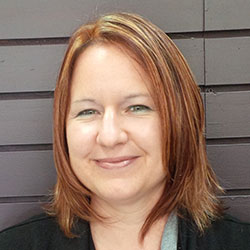- How did you learn about the program and what motivated you to enroll?
-
I Iearned about the program through the UVic Continuing Studies website while I was an under grad at UVic. I later worked for the Provincial government. As a government employee I was eligible to get financial support for professional development training. The PHDA program was a good fit for the analytic skills I needed. I already had some experience working with Administrative data.
- Tell us about your course experience. What skills did you develop and which courses provided the greatest benefit to you?
-
I found the courses I took, PHDA 01 Working with Administrative Data, PHDA 02 Epidemiological Statistics, PHDA 03 Population Health and GIS and PHDA 04 Spatial Epidemiology and Outbreak Detection, all followed in suite to cement my knowledge and skills in methods and research design. The first two courses, PHDA 01 and PHDA 02 were more of a review/refresher for me from my previous academic and work experience. The PHDA 01 course included learning SAS skills and creating your own study. The PHDA 02 course focused more on practical analytic work and less on statistical theory. My favourite course was PHDA 04. It applied all the background/analytic skills I had learned within previous PHDA courses and taught me new geospatial skills.
- How have you been able to (or how do you plan to) apply your new skills in your work/research?
-
My new skills would have proven useful in my previous role as a policy analyst for the provincial government, however I have switched positions. I intended on using my SAS skills and geospatial analysis tools to analyze the MSP data I had access to.
My new job is as a strategy analyst and the certificate has provided me knowledge about the potential use of administrative data to inform decision making. In completing this course, I have added another domain of knowledge which I can consider when developing strategic plans related to IM/IT.
- What do you think were the strengths of this program? Please provide examples.
-
One of the greatest strengths of the program is the access to the Secure Research Training Lab. It holds practical, well written, easy to follow lab activities in data analytics and a very useful de-identified BC Heath Dataset as well as other health related training datasets for applied learning. This provided an excellent learning environment for professional development training in data analytics.
- Would you recommend this program to others? If so, what recommendations/suggestions would you give those interested in applying to this program?
-
Yes, I would definitely recommend this program to others. For those just starting the program within the PHDA 01 course, I would recommend that they work carefully through the SAS components and try to keep their project work simple. It is also best to take one course at a time if you are working or taking full time studies.

